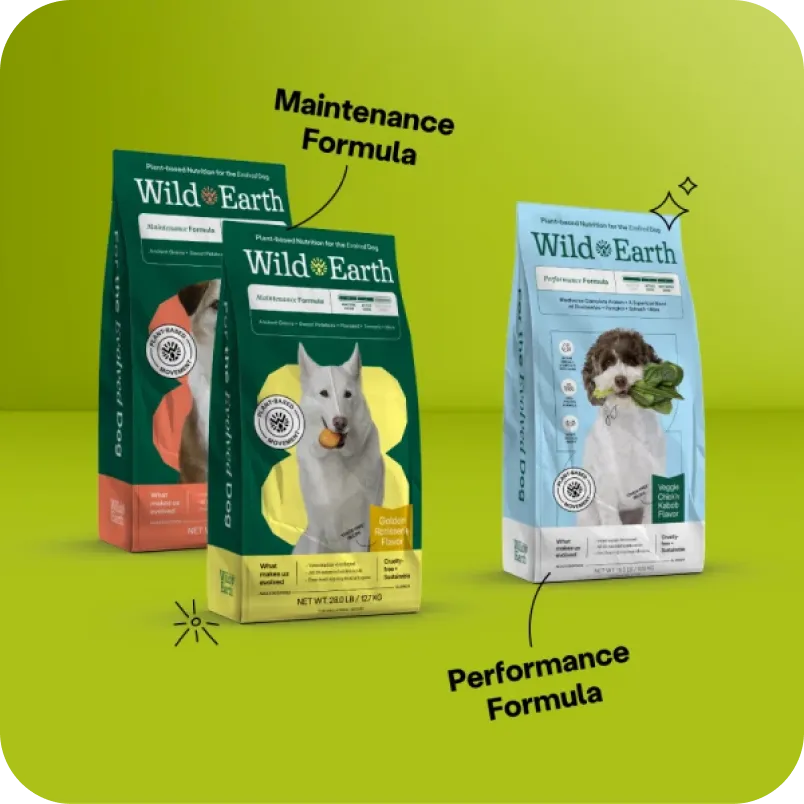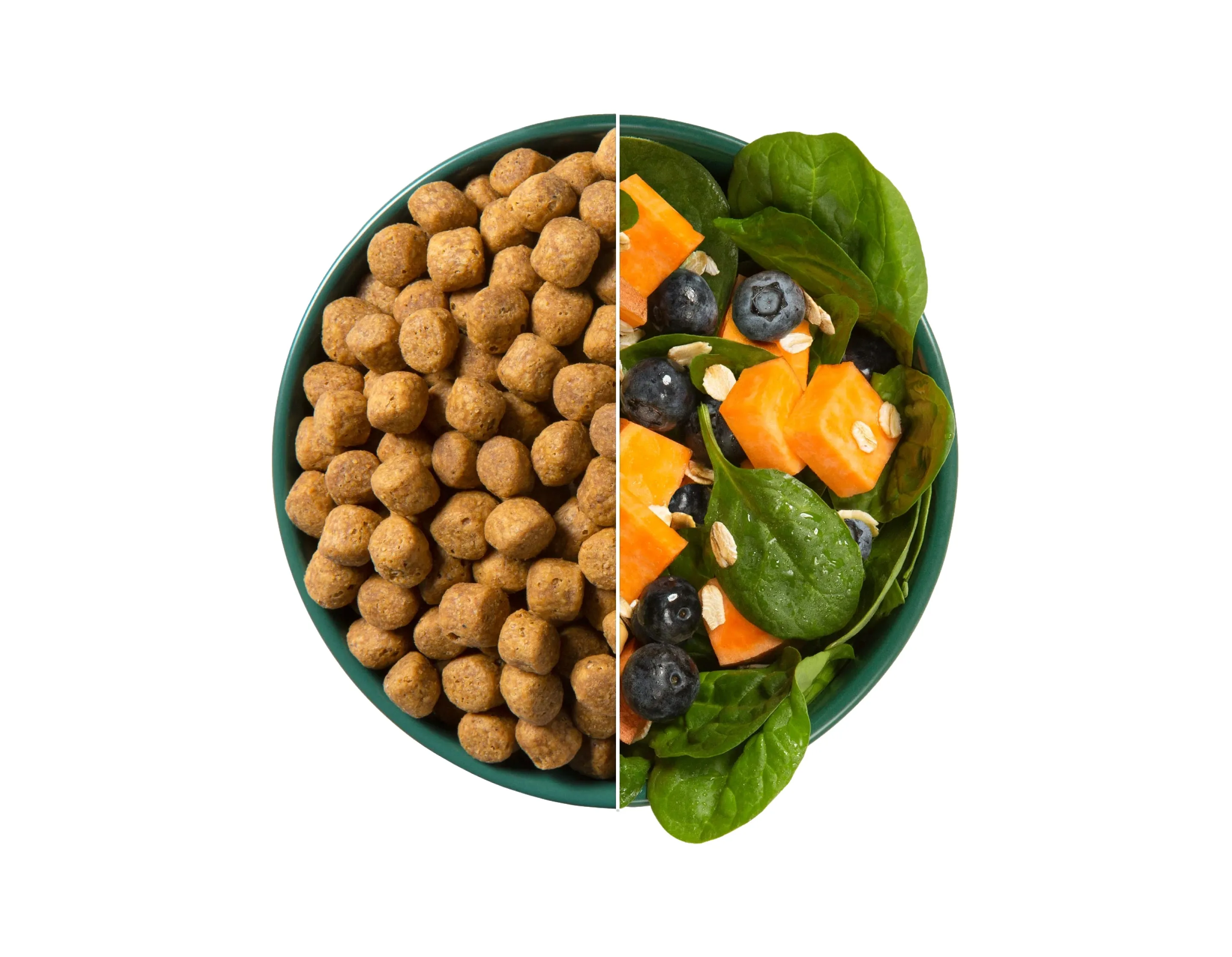As human dietary preferences evolve, so too does our consideration for our beloved canine companions. The concept of Vegan Dog Food has gained significant traction, sparking both curiosity and debate among pet parents. Many wonder if a plant-based diet can truly provide all the essential nutrients for a dog’s health and well-being, especially given the common perception that dogs are inherently meat-eaters. This article aims to explore the facts, benefits, and safety of plant-based diets for dogs, debunking myths and shedding light on how a properly formulated vegan diet can be a healthy and sustainable choice for your furry friend. To ensure your dog thrives, understanding their nutritional needs is paramount, whether you opt for a traditional diet or explore alternatives like best all life stages dog food.
The Evolutionary Shift: Are Dogs True Carnivores?
A widely held belief is that dogs, descended from wolves, are strict carnivores requiring a meat-centric diet to thrive. While wolves are indeed carnivores, dogs have undergone thousands of years of co-evolution with humans, leading to significant physiological and dietary adaptations. This journey alongside humans transformed them into omnivores, capable of digesting and utilizing nutrients from a wider range of food sources, including both animal and plant matter. Their digestive systems have adapted to process starches and other plant-based ingredients far more efficiently than their wolf ancestors.
This crucial evolutionary shift means that what dogs truly need is quality protein, alongside a balanced array of fats, carbohydrates, vitamins, and minerals, rather than solely meat. Plants are incredibly rich sources of protein, often providing a more complete nutritional profile than many realize.
Debunking Myths: Vegan Dog Diet – Fact or Fiction?
The misconception that dogs must eat meat persists, but scientific advancements and real-world results are proving otherwise. The idea that a plant-based diet is inherently unhealthy or incomplete for dogs is largely a myth. In reality, a well-formulated vegan dog food can be healthier and promote longevity, as evidenced by a growing number of studies and the experiences of countless pet parents.
What Makes a Dog Food Nutritionally Complete?
The key to a healthy dog diet, whether plant-based or not, lies in its nutritional completeness. This means providing all the macro- (protein, fats, carbohydrates) and micronutrients (vitamins, minerals) that dogs require for optimal health. Protein, a cornerstone of canine nutrition, is essential for muscle development, immune function, and overall vitality. While meat is a common protein source, plants such as yeast, legumes, and various grains are also excellent providers of protein, including the essential amino acids dogs need. The focus should be on the source of the nutrients and their bioavailability, not solely on whether they come from an animal or plant.
 A happy dog eating vegan dog food from a bowl.
A happy dog eating vegan dog food from a bowl.
Backed by Science: The Purpose Behind Plant-Based Formulas
High-quality vegan dog food is not merely a collection of random plant ingredients; it is carefully formulated with a specific purpose: to provide targeted health benefits for your best friend. Every ingredient is chosen for its nutritional value and contribution to total body health.
Leading plant-based dog food brands meticulously select delicious, rich superfood ingredients. These often include nutrient-dense components like sweet potato, spinach, pumpkin, and oats. These clean, cruelty-free ingredients are packed with vitamins, minerals, and fiber, contributing to robust health.
Moreover, these formulas prioritize complete and high protein content. By utilizing clean, sustainable, and tasty yeast and various plant proteins, these foods can offer equivalent or even higher protein by weight compared to traditional meat-based dog foods.
Crucially, reputable vegan dog food recipes are developed by veterinary experts and food scientists. This ensures that each formula provides complete and balanced head-to-paw nutrition, adhering to the strictest dietary guidelines. This expert formulation supports total body health, including enhanced digestion, stronger muscles, and a healthy skin and coat, allowing your dog to play longer, zoomie faster, and snuggle happier.
Addressing Common Concerns About Vegan Dog Food
Making a dietary change for your dog naturally brings questions and concerns. Let’s address some of the most common ones regarding vegan dog food.
Do Dogs Really Not Need Meat to Thrive?
Absolutely. Dogs are physiological omnivores. This means they are biologically capable of breaking down and utilizing protein and other nutrients from both animal and plant sources. A well-formulated plant-based diet provides a nutritionally complete and balanced diet, delivering all the essential proteins, fats, carbohydrates, vitamins, and minerals that dogs require. The notion that dogs must eat meat to thrive is outdated, contradicted by scientific understanding of canine digestion and nutrition. While considering all options for your pet’s diet, it’s interesting to compare with making homemade dog food with chicken and rice which also emphasizes careful nutrient balance.
AAFCO Standards: The Benchmark for Dog Food Quality
For any dog food, meeting the standards set by the Association of American Feed Control Officials (AAFCO) is a critical baseline requirement. AAFCO establishes nutritional profiles for dog foods to ensure they provide complete and balanced nutrition for different life stages. Reputable vegan dog food brands proudly meet these AAFCO guidelines for maintenance, growth, or all life stages. In many cases, these plant-based formulas don’t just meet the requirements; they often exceed them, providing superior nutrient levels. This adherence to rigorous standards offers peace of mind to pet parents considering a plant-based diet.
 A dog looking attentively at the camera.
A dog looking attentively at the camera.
Understanding DCM and Plant-Based Diets
Dilated Cardiomyopathy (DCM) is a serious heart condition that has, in recent years, been a subject of discussion concerning certain dog diets. While some initial concerns linked DCM to “grain-free” or “boutique” diets, including some plant-based options, the scientific consensus currently indicates no direct correlation between properly formulated plant-based diets and DCM. The issue, if a link indeed exists between diet and DCM, appears to stem from nutritional deficiencies in the diet as a whole, rather than the absence of meat. For instance, a lack of adequate taurine or other essential amino acids could be a factor.
High-quality vegan dog food brands are aware of these discussions and ensure their recipes are nutritionally complete, often fortifying with necessary amino acids like taurine when required. Some even reformulate to remove ingredients like legumes, even without a proven correlation, out of an abundance of caution and commitment to canine health. It’s always recommended to consult with a veterinarian regarding your dog’s specific dietary needs and any health concerns.
 A playful dog running in a field.
A playful dog running in a field.
Key Benefits of Choosing Vegan Dog Food
Beyond simply being nutritionally complete, opting for vegan dog food can offer several distinct advantages for your dog and the planet.
- Allergy Management: Many dogs suffer from food sensitivities and allergies, with common culprits being animal proteins like beef, chicken, or dairy. A plant-based diet can eliminate these common allergens, leading to significant improvements in skin conditions, digestive issues, and overall comfort for sensitive dogs.
- Digestive Health: Plant-based ingredients are often rich in dietary fiber, which is crucial for a healthy digestive system. Fiber can aid in regular bowel movements, promote a balanced gut microbiome, and help manage weight.
- Longevity and Vitality: Anecdotal evidence from pet parents and an increasing number of studies suggest that dogs on well-balanced plant-based diets can exhibit improved energy levels, healthier coats, and potentially increased longevity. The absence of inflammatory animal by-products and the presence of antioxidants from plant ingredients may contribute to these benefits.
- Ethical and Environmental Considerations: For pet parents concerned with animal welfare and environmental sustainability, choosing vegan dog food aligns with these values. It supports a cruelty-free approach and significantly reduces the ecological footprint associated with conventional meat production. You can even extend these ethical choices to treats by exploring vegan dog treats.
 A beautiful dog portrait.
A beautiful dog portrait.
Conclusion
The evidence overwhelmingly supports the fact that a well-formulated vegan dog food can provide all the necessary nutrition for dogs to not just survive, but to thrive. Dogs have evolved into omnivores, capable of flourishing on diets rich in plant-based proteins and nutrients. By debunking common myths and adhering to rigorous scientific and veterinary standards, plant-based diets offer a viable, healthy, and ethical alternative for your canine companion. From addressing allergies and improving digestion to promoting overall vitality and aligning with ethical values, the benefits are clear. As with any dietary change, consulting with your veterinarian is always recommended to ensure the best outcome for your dog’s specific needs. Explore the growing range of balanced vegan options and discover a new path to health for your beloved pet.
